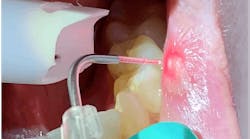I’ve worked in a lot of offices. I’ve worked in some that did it right, as well as many that did it wrong. But one thing I learned from all of these different experiences with onboarding is that if an employer takes it seriously, that employer has a better chance of retaining employees.
If your dental practice does nothing else when it comes to onboarding, tell potential employees the whole truth and nothing but the truth. There’s nothing worse than someone anticipating a great job and then finding out he or she is the fourth person hired in less than a year. If an office tries to cover up its problems, new employees will find out. When they do, they won’t trust the employer and they won’t stay long on the job.
What is onboarding?
Onboarding is a rather new term that means training employees. But it doesn't refer just to training people to do a job. It also means introducing them to the culture of the practice. Onboarding should be very organized and well-planned. The idea is to make sure that employees are comfortable enough to work on their own with confidence.
But good onboarding goes beyond that. It starts before someone is hired. Once you narrow your prospects to two or three people, you need to sit down again with each one and have a good conversation. At this interview, be honest about your expectations, give honest responses to different situations and how staff members behave and interact with each other, and share a history of positive and negative issues the office is working to overcome.
Doing this will help you find someone who is like-minded. If you’re a micromanager, don't hire an entrepreneur. If you run a relaxed office, don't hire someone who is uptight and unable to laugh about anything. You want to have a diverse staff with different talents, but you need new employees to blend in with the current staff.
What about new employees?
People need to know the rules of the game. As an example, my husband tried to teach me golf. At each hole he gave me a new rule! At hole number three I looked at him and said, “Wait a minute. I want to know all the rules now, not a new one at each hole.” Of course, the game is more complicated than that, but you get what I mean.
Your employees don’t want to learn a rule only they make a huge mistake, such as asking the front office manager if she gave the doctor enough time for that filling when she’s been in the position for 10 years. These are the types of cultural rules new employees need to know because it’s tough to navigate new situations.
If you’re training a front desk person, I recommend you start at the beginning, such as who does what and where things are. The speed with which you train someone depends on many factors, such as background, education, and how they learn best. Some people just need to dive in. I can relate because I’m very hands-on. Give me the mouse and let me find the answers, make mistakes, and ask questions. Other people like to read all the instructions before they start something. Find out what kind of learner a new employee is.
For those who like to be directed, have a procedures manual so that anyone can look up how to do something, such as schedule a patient or make a bank deposit. If your front desk person is out of the office and someone must substitute, the manual should contain the information needed to carry on with the day.
I once did substitute work for an office that did not have a manual, and it was a mess. I didn’t even know the passwords for the online dental insurance companies for benefits. It pays to have an organized system for storing passwords.
One of the prerequisites to onboarding is to have good business processes and policies in place. I tell practices, "If you don't have your business processes in place, go back to the beginning." Having a good solid foundation will help your future employees have a good place to stand.








